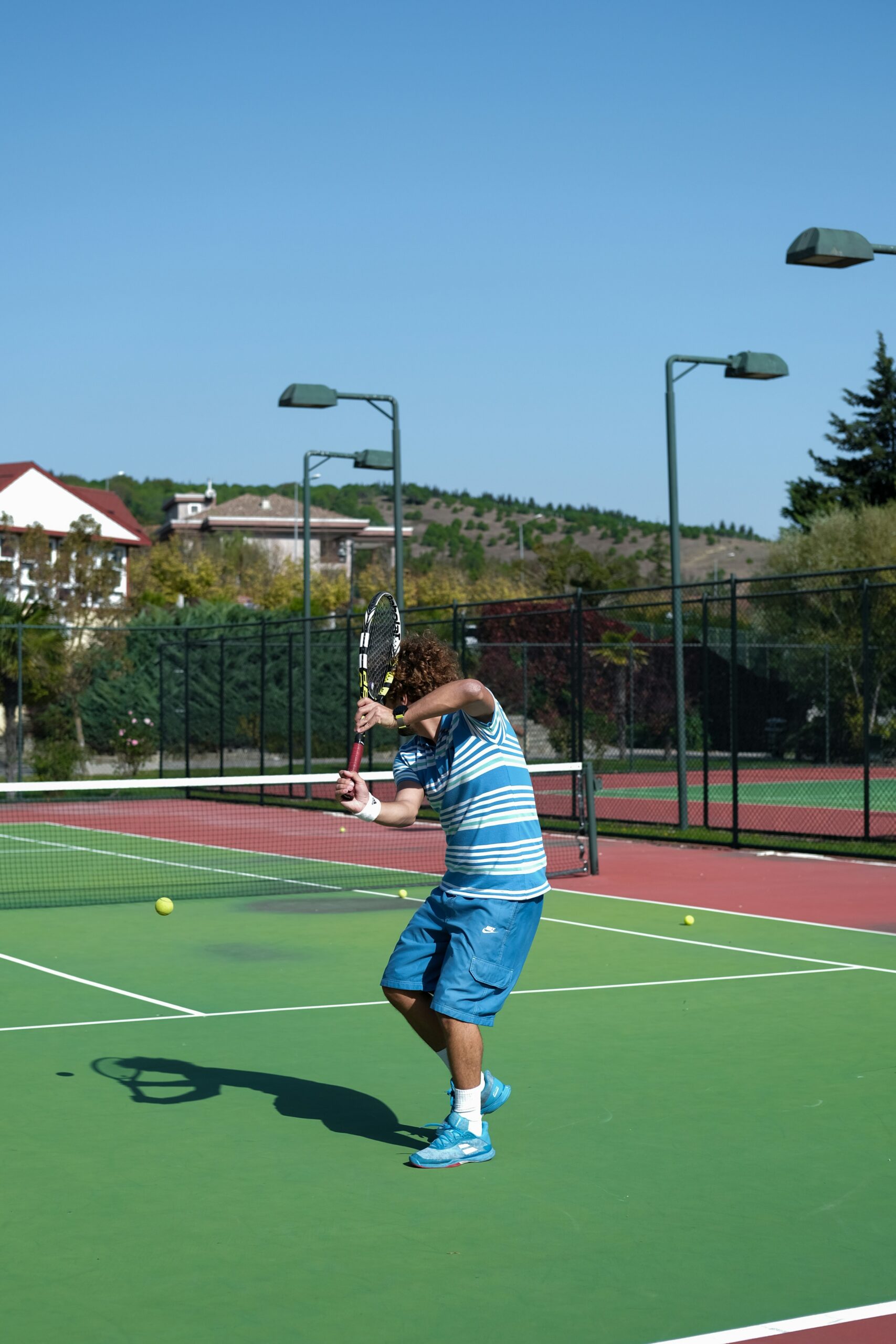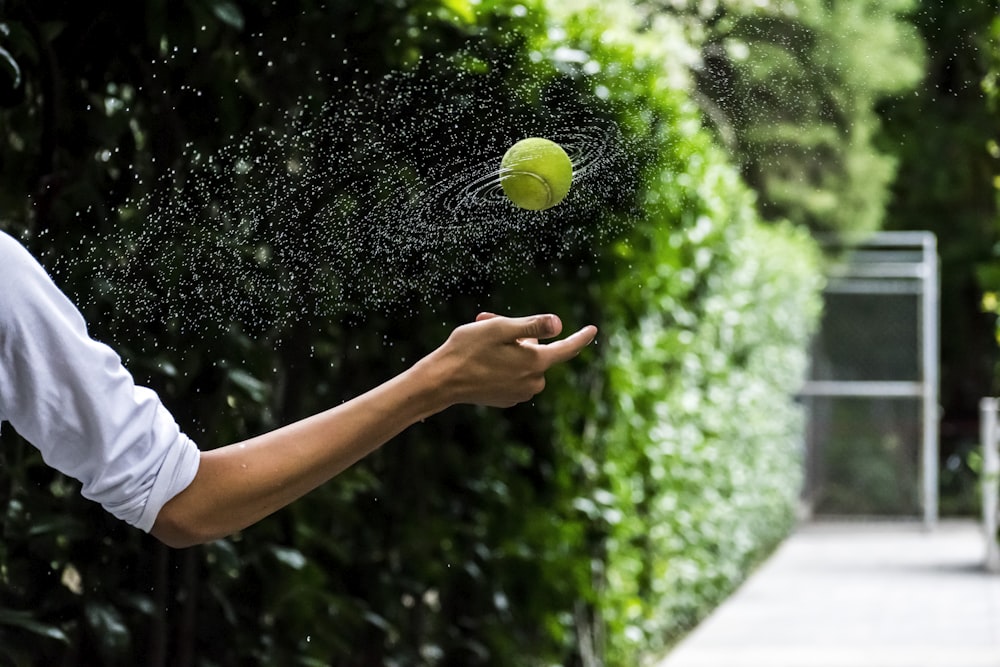Introduction:
In the competitive world of junior tennis, setbacks and disappointments are inevitable. As a parent, it’s crucial to provide the right support and guidance to help your child navigate these challenges while fostering their growth and resilience. This comprehensive guide will equip you with strategies to effectively handle disappointments and setbacks in youth tennis, ensuring your child’s positive development on and off the court.
Initial Response to Tennis
Stay Calm When your child faces a setback or disappointment in their tennis journey, it’s essential to maintain a calm demeanor. Your reaction sets the tone for how your child perceives and manages the situation. Take a deep breath, and remember to approach the situation with composure.
Avoid Overreacting It’s natural to feel disappointed or frustrated alongside your child, but avoid overreacting or displaying intense emotions. Your child looks to you for guidance on how to handle setbacks, so staying composed will model healthy coping strategies for them.Provide Immediate Comfort Offer your child immediate comfort and reassurance. Let them know that it’s okay to feel disappointed and that you’re there to support them. A comforting hug or a listening ear can go a long way in easing their initial distress.
Active Listening in Tennis Encourages Expression of Feelings Encourage your child to express their feelings about the setback openly. Create a safe space where they feel comfortable sharing their emotions without fear of judgment. Active listening is key to understanding their perspective and providing meaningful support.
Validate Emotions Acknowledge and validate your child’s emotions. Let them know that it’s normal to feel upset, frustrated, or disappointed after experiencing a setback in tennis. Validating their feelings validates their experience and strengthens your bond with them.
Ask Open-ended Questions Engage your child in a constructive dialogue by asking open-ended questions. Encourage them to reflect on what happened, how they feel, and what they think they can learn from the experience. Open-ended questions promote critical thinking and help your child gain insights into their tennis journey.
Reframe Perspective in Tennis
Emphasize Learning Opportunity Reframe the setback as a learning opportunity rather than a failure. Help your child understand that setbacks are an inevitable part of any journey, including their tennis journey. Encourage them to view the experience as a chance to learn and grow, both as a tennis player and as an individual.
Highlight Growth and Improvement Shift the focus from the outcome of the setback to your child’s growth and improvement. Celebrate the progress they’ve made so far and remind them of the skills they’ve developed through their dedication to tennis. Emphasize that setbacks do not define their worth as a player or as a person
Discuss the Nature of Sports Engage your child in a conversation about the nature of sports and competition. Help them understand that winning and losing are part of the game and that every athlete faces challenges along the way. Encourage them to adopt a resilient mindset and to persevere in the face of adversity.
Provide Encouragement and Support in Junior Tennis
Offer Words of Encouragement Provide your child with words of encouragement and affirmation. Let them know that you believe in their abilities and that you’re proud of their efforts, regardless of the outcome. Encouragement boosts your child’s confidence and motivates them to keep pursuing their tennis goals.
Reinforce Effort Over Outcome Focus on praising your child’s effort and hard work rather than solely on the outcome of their matches. Reinforce the importance of dedication, perseverance, and resilience in achieving success in tennis and in life. By emphasizing effort, you instill a growth mindset in your child and empower them to overcome challenges.
Assure Unconditional Support Reassure your child that your support is unconditional, regardless of their performance on the tennis court. Let them know that you’re proud of them not just for their achievements, but also for their courage in facing setbacks and for their commitment to improvement. Unconditional support strengthens your bond with your child and fosters a sense of security and confidence in them.
Teach Resilience and Perseverance in Junior Tennis
Normalize Setbacks Normalize setbacks as a natural part of the learning process in tennis. Share stories of famous athletes who have faced setbacks in their careers and have bounced back stronger than ever. By normalizing setbacks, you help your child understand that adversity is temporary and that resilience is key to long-term success.
Discuss Coping Strategies Equip your child with coping strategies to deal with setbacks effectively. Teach them relaxation techniques, such as deep breathing or visualization, to manage their emotions during challenging moments. Encourage them to maintain a positive attitude and to focus on what they can control rather than dwelling on things beyond their control.
Share Personal Stories of Resilience Share your own experiences of resilience and perseverance with your child. Open up about times when you faced setbacks or challenges in your life and how you overcame them. By sharing your stories, you demonstrate to your child that setbacks are temporary obstacles that can be overcome with determination and resilience.
Maintain Balance in Junior Tennis
Avoid Overemphasis on Tennis While it’s important to support your child’s passion for tennis, avoid placing too much emphasis on their performance or results. Encourage them to pursue other interests and hobbies outside of tennis to maintain a healthy balance in their life. By diversifying their interests, you help your child develop a well-rounded identity beyond tennis.
Encourage Diversification of Interests Encourage your child to explore different interests and activities that complement their tennis training. Whether it’s music, art, or academics, diversifying their interests not only provides balance but also enhances their overall well-being and personal development. Support your child’s exploration and encourage them to find joy and fulfillment in various pursuits.
Promote Healthy Coping Mechanisms Promote healthy coping mechanisms beyond tennis to help your child manage stress and pressure effectively. Encourage them to engage in activities such as exercise, mindfulness, or spending time with friends and family to recharge and rejuvenate. By promoting healthy coping mechanisms, you help your child develop resilience and emotional well-being.
Encourage Reflection and Goal-setting in Junior Tennis
Reflect on Lessons Learned Encourage your child to reflect on the lessons learned from setbacks and disappointments in tennis. Ask them to identify what they’ve learned from the experience and how they can apply those lessons to future challenges. Reflection fosters self-awareness and personal growth, empowering your child to become a more resilient athlete.
Set Realistic Goals Guide your child in setting realistic and achievable goals in their tennis journey. Encourage them to set both short-term and long-term goals that are specific, measurable, and attainable. By setting realistic goals, your child can track their progress, stay motivated, and maintain focus on their development as a tennis player.
Create Action Plans for Improvement Work with your child to create action plans for improvement based on their goals and areas of focus. Break down larger goals into smaller, actionable steps that they can take to progress toward their objectives. By creating concrete action plans, your child gains clarity and direction in their tennis journey, leading to tangible results and growth.
Seek Professional Guidance if Needed in Junior Tennis
Consider Consulting with Coach If your child is facing persistent challenges or struggles in their tennis performance, consider consulting with their coach for guidance and support. The coach can provide valuable insights into your child’s strengths and areas for improvement, as well as tailor training strategies to address specific needs.
Explore Mental Skills Training Explore mental skills training programs or resources designed to enhance your child’s mental toughness and resilience in tennis. Mental skills training focuses on developing key psychological attributes such as focus, confidence, and resilience, which are essential for success in competitive sports.
Discuss with Sports Psychologist if Persistent Issues Arise If your child continues to struggle with managing setbacks and disappointments in tennis, consider seeking guidance from a sports psychologist or mental health professional specializing in youth athletes. A sports psychologist can provide specialized support and strategies to help your child build resilience, manage stress, and optimize their performance on the tennis court.
Promote a Positive Environment in Junior Tennis
Foster Supportive Relationships Create a positive and supportive environment for your child within the tennis community. Encourage positive interactions with coaches, teammates, and opponents, emphasizing sportsmanship and camaraderie. A supportive network of peers and mentors can provide invaluable encouragement and motivation for your child’s tennis journey.
Encourage Team Spirit Encourage your child to embrace the spirit of teamwork and collaboration in tennis. Emphasize the importance of supporting and cheering for their teammates, celebrating successes together, and offering encouragement during challenging times. Fostering a sense of team spirit enhances your child’s overall tennis experience and strengthens their sense of belonging within the tennis community.
Discourage Negative Comparisons Discourage negative comparisons with other players and emphasize the importance of focusing on your child’s individual progress and development in tennis. Remind them that each player has their own unique strengths and challenges, and that their journey is personal and distinct. By discouraging negative comparisons, you help your child maintain a positive mindset and stay focused on their own growth and improvement.
Model Resilience in Junior Tennis
Demonstrate Positive Coping Mechanisms Lead by example and demonstrate positive coping mechanisms when faced with challenges or setbacks in your own life. Show your child how you manage stress, overcome obstacles, and maintain a resilient attitude in the face of adversity. Your actions serve as a powerful model for your child to emulate in their own tennis journey.
Share Personal Experiences of Overcoming Setbacks Share personal stories of resilience and perseverance from your own life experiences with your child. Open up about times when you faced setbacks or failures and how you navigated through them with resilience and determination. By sharing your stories, you inspire and empower your child to adopt a similar resilient mindset in their tennis journey.
Be an Example of Resilience and Adaptability Be an example of resilience and adaptability in your everyday interactions with your child. Demonstrate flexibility and openness to change, and show your child how to bounce back from disappointments with grace and resilience. By modeling resilience and adaptability, you instill valuable life skills in your child that extend beyond the tennis court.
Celebrate Progress and Achievements in Junior Tennis
Acknowledge Small Victories Celebrate your child’s small victories and milestones in their tennis journey. Whether it’s mastering a new technique, showing improvement in a specific skill, or displaying good sportsmanship during a match, acknowledge and celebrate their achievements along the way. Recognizing small victories boosts your child’s confidence and motivation to continue progressing in tennis.
Celebrate Effort and Dedication Highlight your child’s effort and dedication in their tennis training and competitions. Recognize the time and energy they invest in practicing, attending lessons, and participating in matches, regardless of the outcome. By celebrating their dedication, you reinforce the value of hard work and commitment in achieving success in tennis.
Highlight Personal Growth Celebrate your child’s personal growth and development as both a tennis player and an individual. Recognize their resilience, perseverance, and positive attitude in the face of setbacks, and commend their progress in overcoming challenges. By highlighting their personal growth, you nurture your child’s self-esteem and confidence in their tennis journey.
Encourage Enjoyment of the Game of Tennis
Focus on Fun and Enjoyment Emphasize the importance of fun and enjoyment in your child’s tennis experience. Encourage them to approach tennis with a playful and lighthearted attitude, focusing on the joy of playing rather than solely on competition or results. By fostering a love for the game, you ensure that your child’s tennis journey remains fulfilling and rewarding.
Emphasize Long-term Enjoyment Over Short-term Outcomes Shift the focus from short-term outcomes to long-term enjoyment and fulfillment in tennis. Encourage your child to focus on the process of improvement and the satisfaction of personal growth rather than solely on winning or losing matches. By emphasizing long-term enjoyment, you instill a lasting passion for tennis in your child that extends beyond immediate results.
Foster Love for the Sport Nurture your child’s love for the sport by creating positive tennis experiences and memories. Encourage them to explore different aspects of tennis, such as recreational play, social events, and community involvement. By fostering a deep love for the sport, you ensure that your child’s tennis journey is enriching and meaningful for years to come.
Conclusion
In conclusion, navigating disappointments and setbacks in junior tennis as a parent requires patience, understanding, and a supportive approach. By staying calm, actively listening, reframing perspectives, and providing encouragement and support, you can help your child develop resilience and perseverance in their tennis journey. By promoting a positive environment, modeling resilience, celebrating progress and achievements, and encouraging enjoyment of the game, you ensure that your child’s tennis experience is fulfilling, rewarding, and conducive to their overall growth and development. Remember, your support and guidance play a crucial role in shaping your child’s tennis journey and fostering their resilience both on and off the court.





